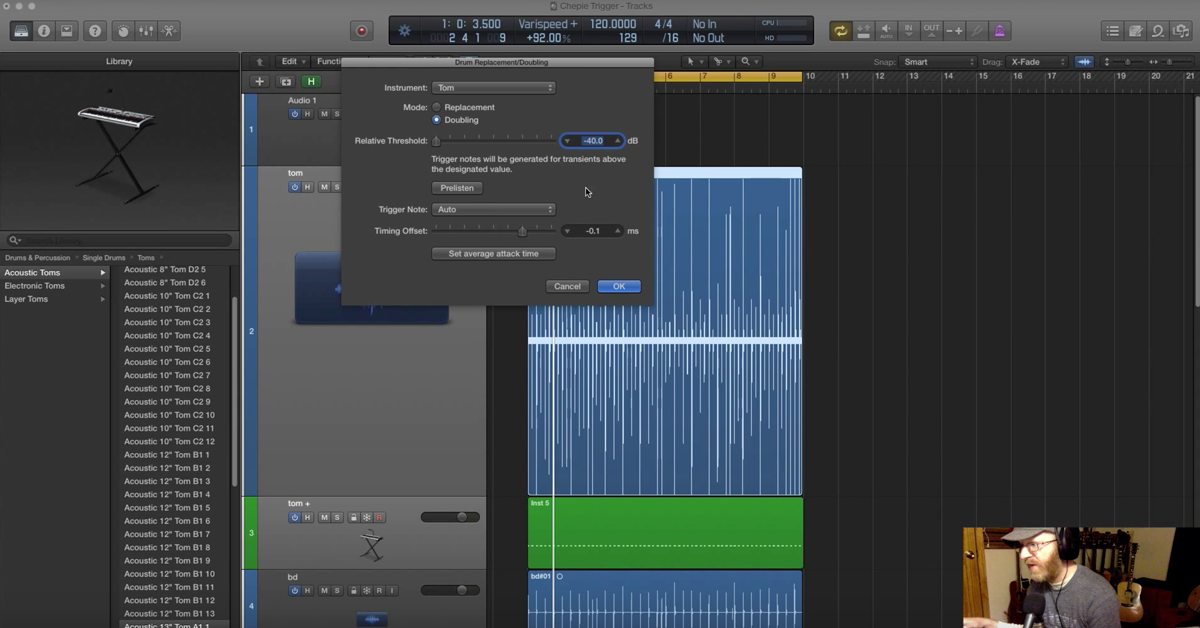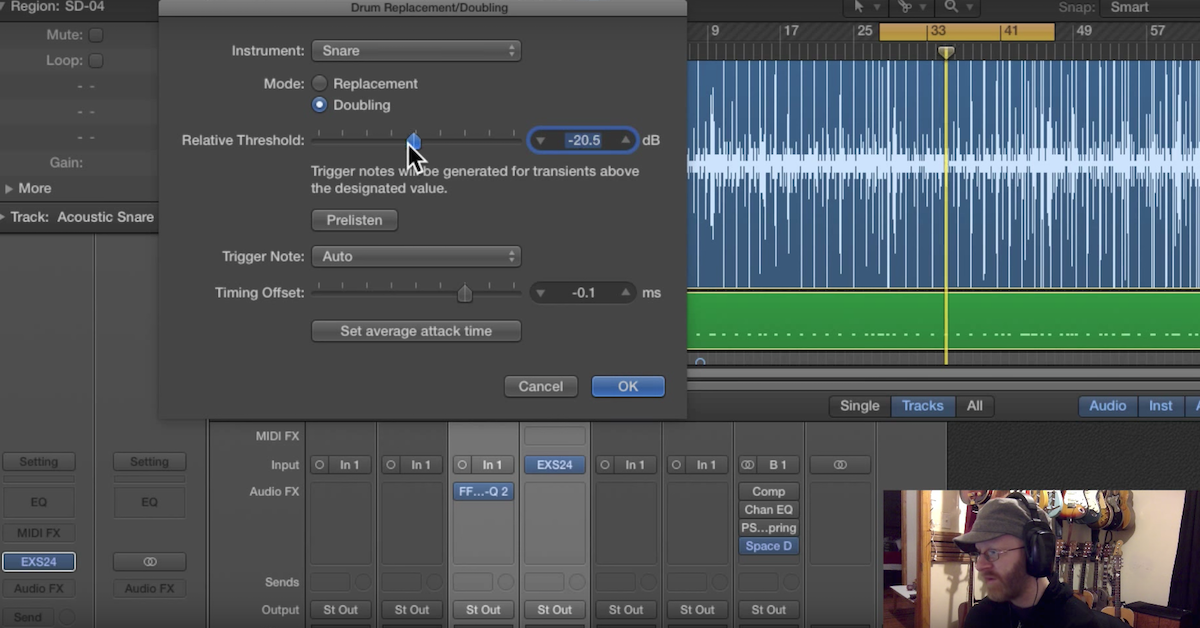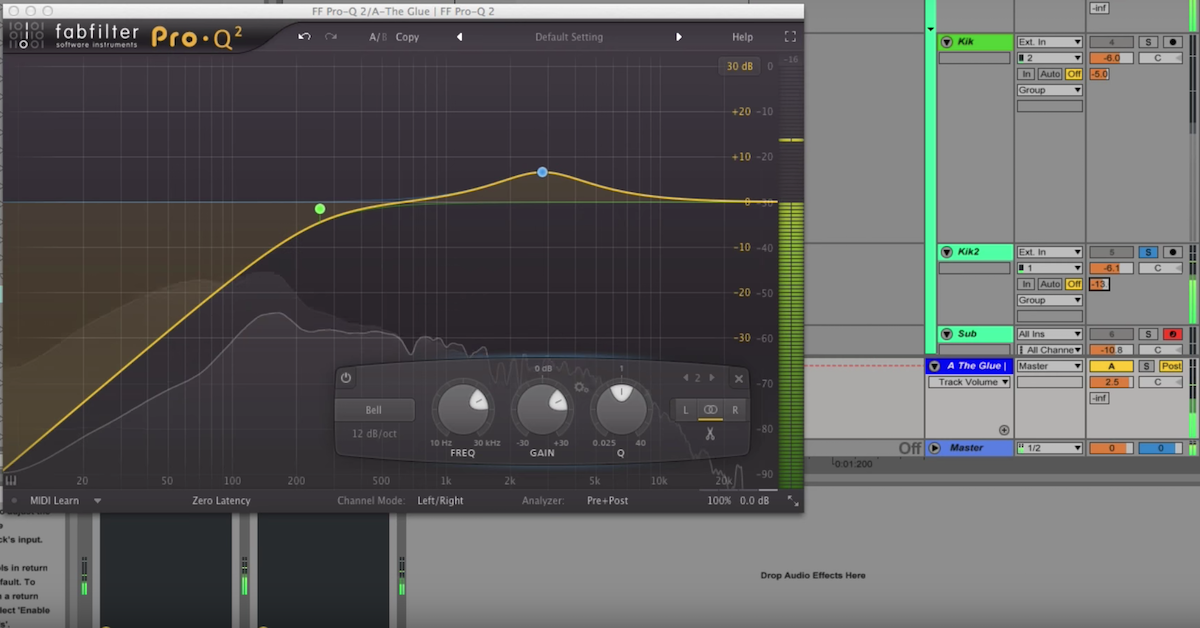Setting the Record Straight About Drum Replacement
Article Content
I think it’s time to rein in all this moral panic surrounding drum samples.
This article isn’t a ‘samples are amazing/evil’ argument. It’s a realistic take on the use of sample replacement and how it can act as an effective tool for music making, as opposed to dark magic that sucks creativity into a black hole.
For this article, I’ll be focusing mainly on software based solutions such as Slate Digital’s Trigger. I don’t have much experience using hardware triggers or cymbal replacement, so think of this as a general ‘drum hit’ replacement type deal.
Personally, I think it’s of huge importance for any budding engineer to practice recording a drum kit in many different applications or genres. You will learn more about sound, phase, and rooms recording drums than you will any other instrument, in my opinion.
There is also a charm to a well recorded drum kit, but that isn’t the be-all-and-end-all of great sounding music. Sample replacement can really help you get the sound you want. While I don’t use samples much at all, I don’t think it is something to be frowned upon if it serves the needs of the music. I believe that people should be free to use samples if they feel it’s necessary.
Let’s cover some of the usual phrases we get from sample nay-sayers….
“Samples Sound Bad”
I get where people are coming from with this, but you can make samples sound believable. Saying sample replacement ‘sounds’ bad is as about as useful as saying MIDI ‘sounds’ bad. I hope I don’t have to explain myself on that either!
I’m guessing this argument refers to the typical sampled kick that sounds like a typewriter and the same snare sample being used over and over, resulting in a robotic and sterile performance. However, this case of poor sample replacement shouldn’t be used against the use of samples overall. I’d agree that flattening out all the velocity dynamics messes too much with the original performance and leaves you with some very uninspiring sounds, so I wouldn’t recommend that.
Of course, some performances rely heavily on intricate dynamics and techniques that just can’t be re-sampled (very easily), for example – snare rolls at different areas of the drum head. Use your own judgement if you come across this.
Oh, and if you have bad samples, use good samples. I thought that was obvious, but …
“Samples Are for Inexperienced Engineers”
This can be true, but it doesn’t mean that anyone who uses samples is inexperienced. It is definitely important to know how to record drums well, and you should always strive to record to meet the needs of the project. But if you can’t, it is not necessarily your fault.
Imagine a guitarist wants to record their small practice amp, but wants the sound of a huge cab. You’d expect the engineer to suggest taking a direct signal as well for possible re-amping. You must take into account the quality/style of the recorded instrument, the recording space and the vision of the artist.
Avoiding sample replacement purely based on principle is a massive disservice to the end-product. No one is going to thank you for putting out sub-par drum sounds all because you were reluctant to identify what the music requires.
There are plenty of audio processing tools that are used in every song mix that alter the sound of the original performance. Just take EQ or Compression for example. If you think sample replacement is nothing more than an excuse for bad engineering, then to an extent using EQ or compression is as well.
Of course that’s just me being picky, I don’t think any tool should be used as a cover up for bad engineering.
“Using Samples Is Deceiving/Cheating”
Oh, boy. Where do I begin with this?
Let’s start with the notion of deception …
Anytime you edit any performance, tune a vocal line or use reverb, you are technically deceiving the listener. The fact that most bands record by performing each instrument separately is massively deceiving. The art of making music is deceiving in itself, it’s all one big illusion when you think about it.
Imagine this:
“Hey man, that vocal has a great reverb, did you record it in a church?”
“No dude, I recorded it in my studio but I added the reverb later. Cool, huh?”
“You … MONSTER.”
Wait, so you guys don’t write your own plugins? Jeez, what a bunch of cheaters. Speaking of cheating …
Which part exactly is the ‘cheating’? Is it that using samples gets a better sound in less time? Whether that’s true is debatable, but using that logic, surely buying an expensive microphone is cheating because it will sound better, with less effort, than a cheaper microphone.
So if buying expensive gear is cheating, what about people who make music with inexpensive gear? Isn’t that cheating too? Don’t they need to have spent years slaving away on a huge desk in order to truly be worthy of creating music?
Hmmm.
So now that we’ve established that anyone who buys any piece of gear or uses any plugin is a cheat, can we get back to reality?
Imagine if a painter who made paintings with their feet told the world that painters who use their hands are cheaters. It’s just a pointless argument to make.
I get that when you do sample replacement, you may be using samples recorded by someone else, but who cares? On a recent project of mine, I recorded some keyboard with some fantastic piano samples. I recorded the performance, no one else. I don’t feel the need to apologize to piano purists, or engineers who would tell me I’m cheating — I found a great sound for my needs and no one will care, nor hear the difference!
Can You Cheat in Art?
When I think of cheating, I imagine a school kid googling answers in a school exam. So let’s try and apply this to music making …
Let’s say you entered a competition that measured your ability to record drums. Let’s also say your entry was a sampled drum kit. It’s pretty obvious that in this case, the use of samples is cheating.
But does that automatically mean that using samples in general is cheating? Well, is the use of google outside an exam cheating? Of course not.
But that’s just it. Art is not a competition. Art is art. It’s not a job interview and it’s certainly not an exam. Not in the real world, where it matters.
As engineers and music makers, our job is to facilitate art, not our egos. That’s our art. It’s just a shame that too many of us don’t realize that the resulting music we make is more important than the techniques we use.
Maybe people need a scapegoat because they feel threatened, but I’m pretty sure if an engineer is more successful than you because they use samples, they probably could have done it without using samples. And if samples are that bad, then why worry?
Sample replacement is certainly no silver bullet. There are a lot of things involved in creating a great sounding drum sound with samples too. In fact, I struggle more when mixing sampled drums … So now I’m confused, am I cheating because I find it easier to use real drum sounds?
Ergh. Let’s move on.
Final Words
Before I go mad, let’s talk about working with clients.
You don’t want to be the chef who served their vegetarian customer meat without telling them, so be realistic and communicate with your client.
At the start of every project, you need to discuss and identify the needs of the project with the client. Perhaps talk through some bands they like, or want to sound like. All this helps you get an idea for what their vision is of how the drums should sound. That vision may be compromised by many things such as the recording space or client funds so talk it through.
Sample replacement can be a touchy subject for drummers so it might be useful to explain to them the process. Some may be misinformed as to what triggers are or how bad some samples can sound. Some drummers think of sample replacement as actual performance replacement, so make sure they know the difference!
All in all, a great engineer should know how to record drums well. But they should also know how to use their tools to arbitrate where and when to enhance a performance, and that can include samples. Moderation is key.
Sample replacement is simply a means to an end. Nothing more, nothing less.





